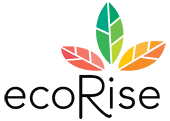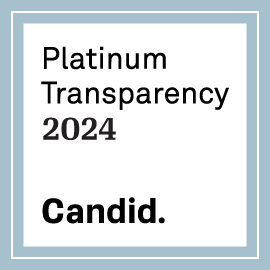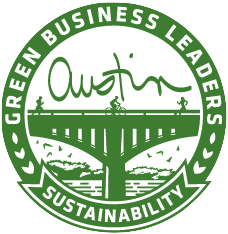EcoRise helps teachers activate entrepreneurial skills for a lifetime
Jason Koltz has a unique teaching gig. At Akins High School in Austin, Texas, Jason is responsible for teaching a class of 9th through 12th graders about money – and business. His “Money Matters” and “Principles of Business, Marketing, and Finance” classes are in the fall and spring, respectively, and Jason does his best to equip his students with problem-solving skills and real-world experience, managing their money and launching a business.
In the spring of 2019, Jason will change his lesson plans to incorporate a new angle: sustainability.
“Sustainability, by its very nature has a financial basis,” Jason says. “In order to sustain a cause, you have to be able to pay for it. I think it’s important to take that parallel and look at it both ways – it benefits society, but it’s also key for a successful business plan.”
 At Akins, “problem-based learning” is emphasized. In Jason’s class, students put together real business plans, examine the inner workings of a real credit union, and approach entrepreneurship as a mindset, not just a job. “Vocabulary is fine, analysis is fine,” he says, “but creating your own is the most effective part.”
At Akins, “problem-based learning” is emphasized. In Jason’s class, students put together real business plans, examine the inner workings of a real credit union, and approach entrepreneurship as a mindset, not just a job. “Vocabulary is fine, analysis is fine,” he says, “but creating your own is the most effective part.”
“All our kids understand what an entrepreneur is – someone who works for themselves,” Jason says. But what Jason is trying to teach is more an entrepreneurial mindset – inspiring students to draw from their passions and motivations to create goods and services that benefit society and the world we live in. Fostering this motivation is not only beneficial to a student’s career, but also to their lives and economic choices.
“You could be the next big thing, or that could just help you in your day to day,” Jason says.
Enabling teachers to incorporate sustainability
Austin based nonprofit EcoRise has been working for the past ten years to supply teachers with resources and lesson plans to teach environmental literacy, sustainable design, and social innovation. With a new curriculum called the Business of Social Good, they will extend those principles to a socially conscious entrepreneurship – helping business teachers like Jason incorporate those principles in a problem-based context. In addition, EcoRise supports student showcases – a fascinating exhibition of innovative projects that address some aspect of conservation or sustainability – and distribute “eco-audit” grants to students tackling sustainability challenges.
For Jason, the Business of Social Good curriculum is perfectly aligned with what he’s already doing. Incorporating an eco-audit in his personal finance class just makes sense – especially with a preset model for what that should look like. For his business students in the second semester, he’s excited to incorporate a sustainability angle into the process of building a business. Many of his students get excited by social good, but less so by the tough work of building a business – doing a SWOT analysis, writing a business plan, identifying competitors.

“It’s important that students see sustainability issues that are connected to their lives,” Jason says. The business projects are student-driven, creating a very authentic learning experience. His students will be able to apply for grants through EcoRise to implement their ideas. If they’re chosen, they’ll be able to take their projects out of the classroom and into the real world.
Donate for impact
We’re big fans of what EcoRise is doing. We’ve always believed in investing in impact, funding entrepreneurs to create value and give back in their turn to their families and communities. What EcoRise is doing with teachers not only inspires the next generation of entrepreneurs, it creates a sustainable design mindset these students can incorporate in everything they do.
This holiday season, join us in supporting EcoRise’s #10XBetter campaign – in honor of their tenth anniversary – and help make it possible for more classrooms like Jason’s to benefit from EcoRise’s classroom programs and grants. For $25 a month, you can underwrite one classroom scholarship for green building and social entrepreneurship programs – directly benefiting students like Jason’s.
As Jason points out, “Social entrepreneurship benefits society, but it’s also key for a successful business plan.”
We couldn’t agree more.
This article was originally published on the Far West Capital blog. EcoRise would like to thank Far West Capital for their continued support over the years and donations to eco-literacy and social entrepreneurship! Far West Capital is in the business of funding the goals of high-growth entrepreneurs. Know a great company in need of capital to unleash their potential? Send them here and FWC will give them a call.




